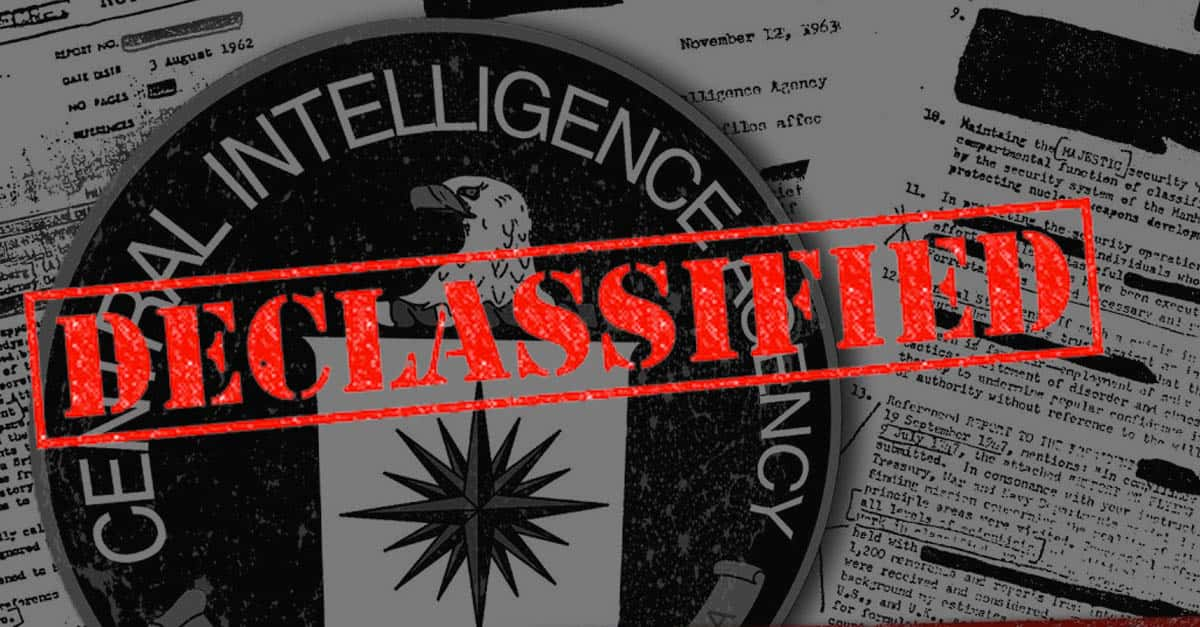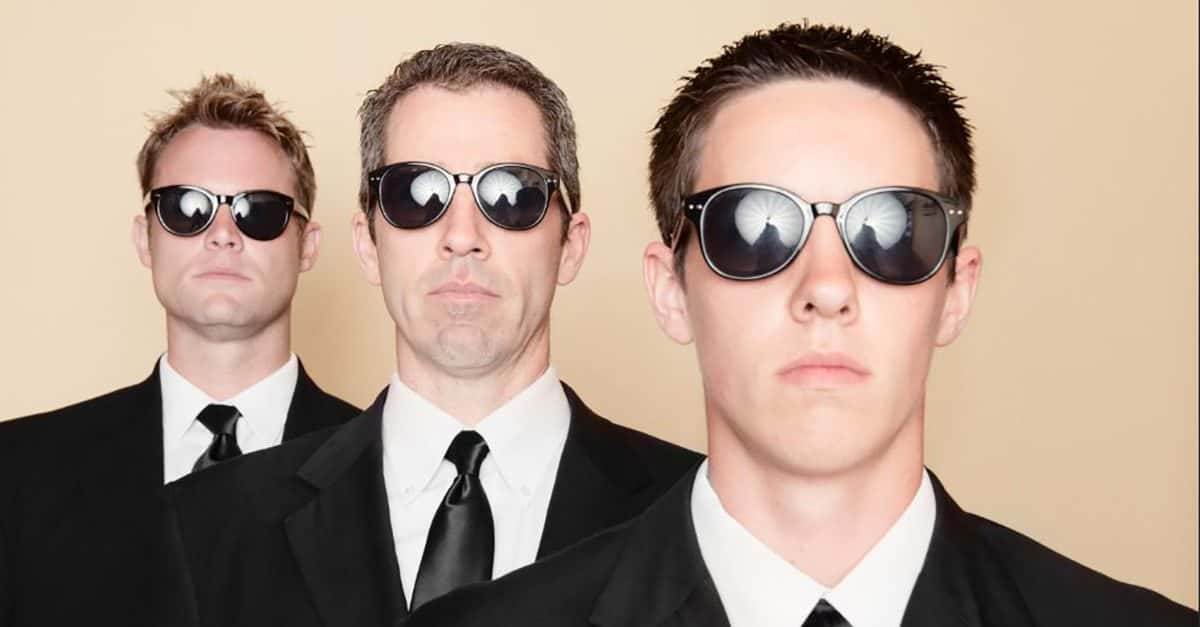From conspiracy theorists, to UFO hunters, to avid viewers of movies like V for Vendetta, the top-secret archives of government intelligence agencies are the object of much fascination. Luckily, governments routinely declassify once-clandestine files when the information contained within is no longer considered dangerous. All of the facts below were at one time classified by various government agencies.
24. There Is No Spoon
Uri Geller, an Israeli magician and self-proclaimed psychic, is famous for one trick in particular: spoon bending, where Geller claims to manipulate a metal spoon with his mind. Sound far-fetched? Not to the CIA apparently. In 1973, they conducted several experiments with Geller, testing his supposed paranormal abilities. Geller performed well enough that declassified documents conclude that he “has demonstrated his paranormal perceptual ability in a convincing and unambiguous manner.”

23. Secret Messages
In January 2017, the CIA declassified a huge archive of documents and placed them in a searchable online database. The documents include a whole section on “Secret Writing,” with instructions on how to covertly open an envelope (“Run a warm iron over the surface” and “dust a little powdered charcoal over the surface” are both steps) and a recipe for “German Secret Ink.”

22. X-Files
As Mulder and Scully long suspected, the CIA does indeed research UFOs and extraterrestrial life. Declassified documents reveal photographs of suspected UFOs, analysis of potential alien encounters, and artistic renderings of hypothetical spacecraft.

21. Cat Power
Cats hate water, right? That’s what the US Army thought during an experiment in World War II. The idea was: soldiers would strap bombs to the back of ill-fated felines and then drop them out of an airplane towards an enemy ship. In theory, the bombs would be more likely to reach their intended target because, since cats hated water so much, they would do whatever they could to board the ship, and hide deep within the depths of the ship where the bombs would be detonated. The idea was never implemented—turns out that if you drop a cat out of an airplane, it will pass out long before landing on a warship.

20. Mum’s The Word
Guy Burgess was a British-born radio producer who was part of the infamous Cambridge Five spy ring, which sent crucial information about British and Allied activities to the Soviet Union during World War II. In 1951, he defected to the Soviet Union—but declassified MI-5 files show that he kept in touch with his mother, sending her letters about his life in the USSR, including his worries about getting fat from eating too much caviar.

19. The bat bomb
Bat bombs were an experimental weapon developed by the United States in WWII. A small incendiary device was attached to a hibernating Mexican free-tailed bat. These bats were put into bomb shaped canisters which contained over 1000 bats. These bat bombs were dropped from a bomber at dawn and the casings would deploy a parachute mid-flight and open, releasing the bats. The bats would then roost in eaves and attics of the target buildings where the incendiaries would detonate.
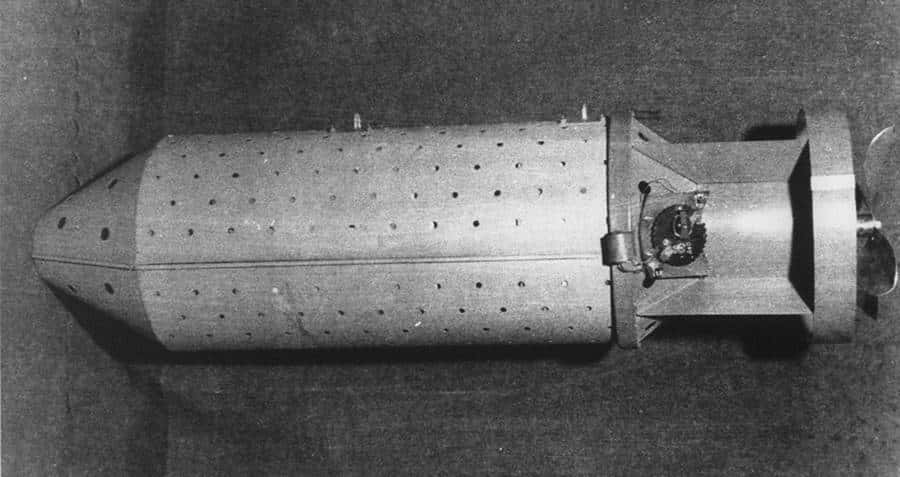
18. Mastering the Art of Spying
Julia Child, the celebrated chef who is credited by many as introducing French home cooking to North America, was a member of a spy organization during World War II. She joined the Office of Strategic Services (she was too tall to enlist in the Women’s Army Corps or the Navy’s WAVES) and worked in various capacities for the OSS throughout the war. One unique task Child had during her time in the spy field drew on the culinary talents she would go on to develop. Too many underwater OSS explosives were being set off by sharks, and Child was tasked with coming up with a possible solution. Child experimented with cooking shark repellents, which were then put into the water around the bombs.
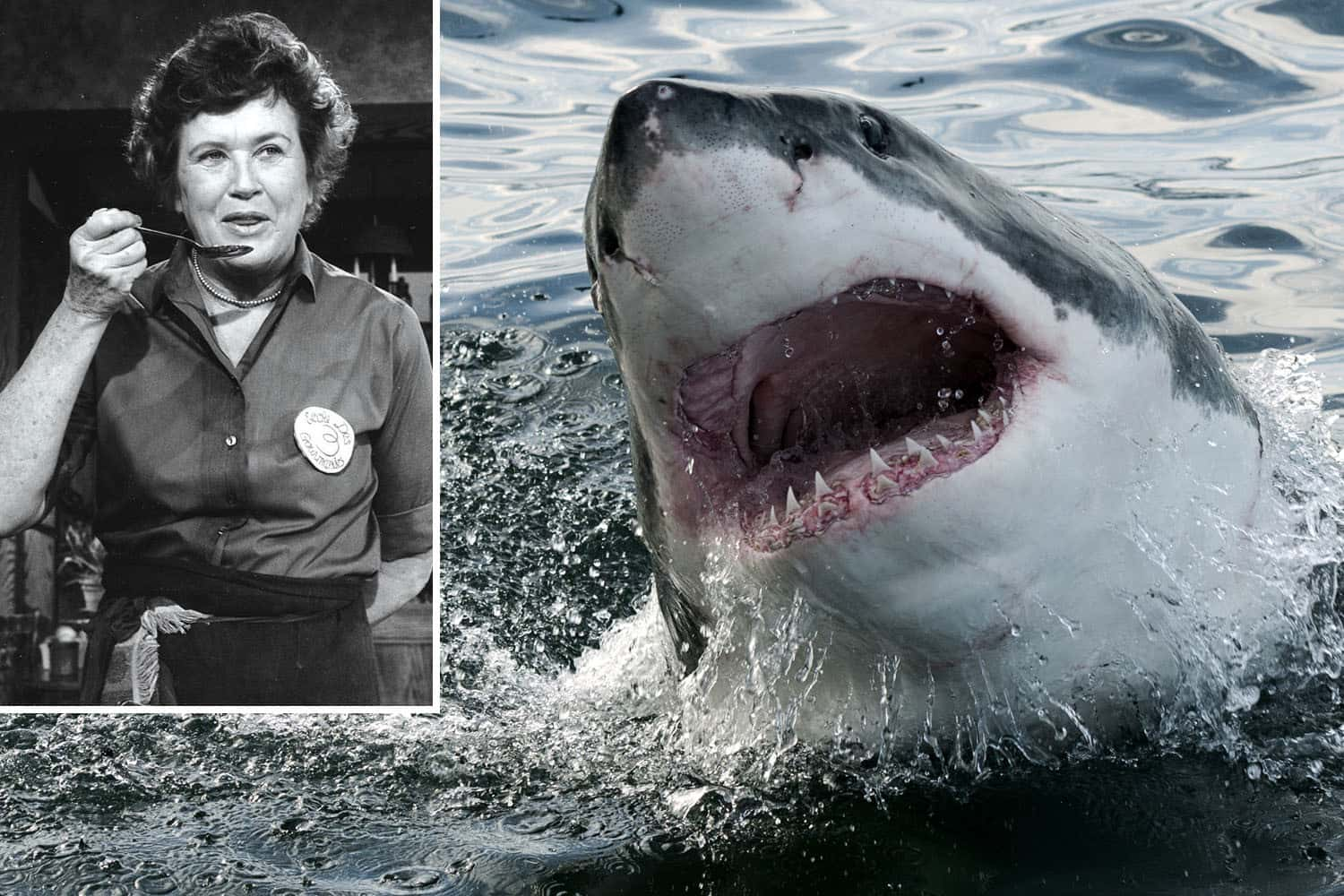
17. Another Round?
MK-ULTRA was a CIA mission that tested lysergic acid diethylamide (LSD) on Americans in New York and San Francisco. The real catch was that these acid-dosed subjects had no idea that they were the subject of such experiments. One place where civilians were given the hallucinogenic drug was 225 Chestnut St., an apartment near North Beach's saloons. The government paid sex workers to bring unwitting test subjects to the apartment, where they would be served acid-infused cocktails while secret agents watched from behind two-way mirrors.

16. Licensed to Cash Cheques
The best spies are usually people who seem like unlikely candidates—right? This was certainly the case for Eric Roberts, a British bank clerk and father of three whose role as a British spy during World War II baffled his fellow bank employees. Roberts would go on to be a very important player in the British anti-Nazi intelligence efforts; By posing as a Gestapo agent, he infiltrated British Nazi sympathizers and passed the information back to MI-5.
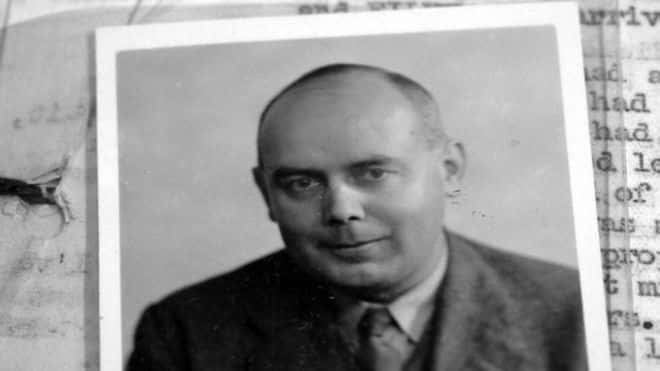

History's most fascinating stories and darkest secrets, delivered to your inbox daily.
15. Flying Saucers
A group of documents declassified by the US Air Force in 2012 included records of a secret military initiative called “Project 1794.” The goal of this project was to build a disc-shaped flying vehicle—really, a flying saucer—that could travel at supersonic speeds and be used to shoot down Soviet planes. Project 1794 never got off the ground, so to speak: in 1960, tests showed that a saucer-shaped flying vehicle wasn't really the best design for an aircraft.

14. Area 51
The public imagination thinks of Area 51, a top secret Air Force base in a remote part of the desert in Nevada, as being the home of paranormal activities, UFO sightings, and top-secret government experiments. Some people even believe there were alien bodies kept on ice there. As it turns out, the government was flying all kinds of experimental aircraft (including the U-2 spy plane) in that area during the Cold War. When people reported the sightings the government denied any involvement, leading to all of the creation of conspiracies theories.
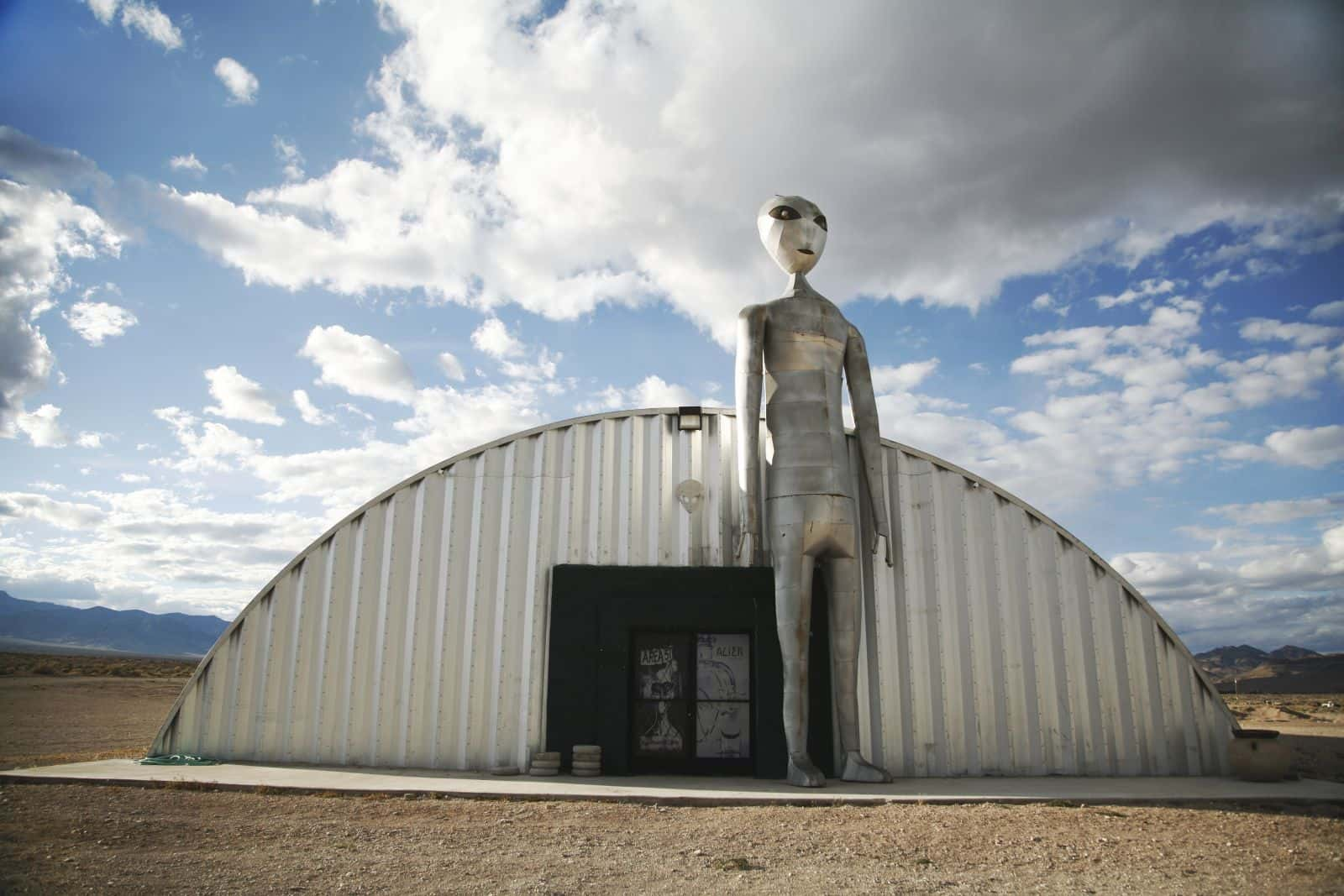
13. Operation Paperclip
Starting in 1945, the US Government ran an aggressive campaign designed to lure German scientists, engineers, and technicians to the USA—and away from the clutches of the Soviet Union. Some 1,600 people were recruited as part of the program, including former high-ranking Nazi officers and scientists.

12. The Nuclear Bomb
The Manhattan Project has become one of the most famous top secret projects in world history. The research project designed the atomic bombs that were later dropped on Hiroshima and Nagasaki. The military was terrified that the Axis armies would learn about the Manhattan Project and build their own bombs; as a result, the project was kept absolutely confidential. Vice-President Harry Truman did not even know of the existence of the Manhattan project until he became President of the United States.
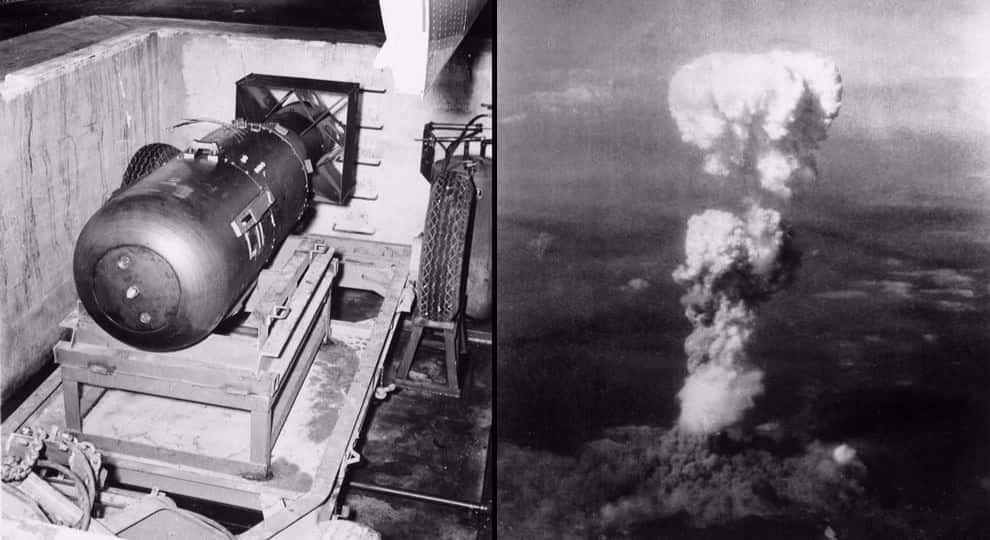
11. Operation Gladio
Secret armies? Paramilitary operations? Hidden caches of deadly weapons? It might sound like the latest Tom Cruise movie, but it also describes a secret NATO program after World War II and throughout the Cold War. Originally conceived for Italian operations, Operation Gladio more generally designates secret “stay-behind” armies that remained in Soviet and other “enemy” countries after World War II concluded. These armies were in place as a preventative measure against a Soviet invasion in the Cold War, and these resistance movements were prepared to fight from behind enemy lines.

10. Sheep Kill
In 1968, 6,000 sheep on ranches near an army base in Utah were killed. For years, there were rumours that the cause of death was an escaped biological weapon from the Dugway Proving Ground army base—and in a report made public in 1998, Air force Press Officer Jesse Stay wrote that it was indeed possible that the nerve gas VX had leaked from an aircraft with a chemical dispenser, killing the sheep.
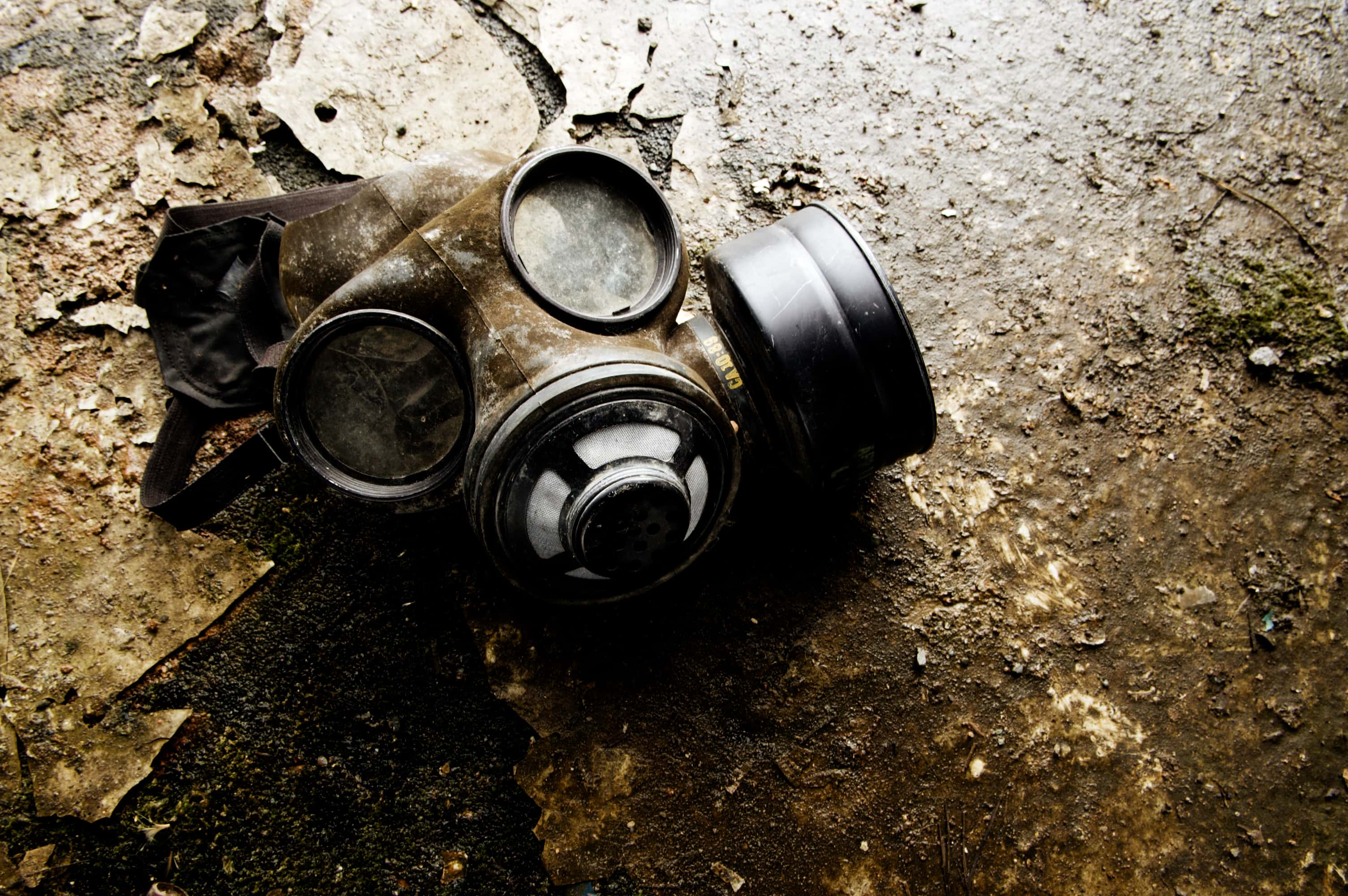
9. Acoustic Kitty
In the 1960s, the CIA spent about $20 million researching the possibility of using cats to spy on USSR embassies. The CIA implanted a small microphone and radio transmitter into the cat’s body, which they thought would allow secret agents to record conversations from within the embassy. However, as anyone who has ever actually had a cat knows, trying to get a cat to obey a human is a loser’s game. The first test run of the project attempted to have a cat record a conversation between two men outside the Soviet compound in Washington—but (unsurprisingly) the cat refused to listen to its handlers.

8. The Missing Bomb
In 2008, the BBC published a shocking report based off interviews and declassified information: in 1968, the US Army flew a routine mission where nuclear-armed B52 bombers circled over Thule—an airbase in Greenland chosen for its proximity to Moscow. Tragically, one of the planes crashed, detonating the (luckily unarmed) nuclear devices. However, as the investigation into the crash progressed, it became apparently that one of the nuclear bombs was missing. It has never been recovered.

7. Ask Permission Later
In the 1960s, the CIA tried to “borrow” something of the USSRs without Soviet permission. This was no favourite sweater—what the CIA wanted to borrow was the “Lunik” lunar satellite! It was the height of the space race, and the CIA secretly took the satellite apart, photographed it, and then returned it to the Soviets. “To this day,” the final report reads, “there has been no indication that the Soviets ever discovered that the Lunik was borrowed for a night.”

6. Imagine
Beatle and well-known activist John Lennon was the subject of FBI surveillance—and during the 1972 presidential election, the FBI watched him even more closely than usual. They followed his public appearances and concerts, and even tracked the activities of Yoko Ono’s daughter from a previous marriage.

5. Nessie
The Loch Ness Monster is just a myth—right? Some files in the Scottish government paint a more complicated picture. A former police chief in Inverness named William Fraser wrote in 1938 "That there is some strange creature in Loch Ness seems now beyond doubt, but that the police have any power to protect it is very doubtful.”

4. She Sells Sea Shells
The notion that the CIA hated Fidel Castro is hardly surprising, but the creative assassination plots the US government agency concocted to eliminate the leader might raise an eyebrow or two. One particularly unusual ploy planned to kill Castro with a beautiful, booby-trapped seashell: Castro was a fan of skin diving, and the idea was that the CIA would plant a seashell so beautiful in the water that Castro could not help but pick it up, whereupon the seashell would explode. The CIA’s head of Cuban operations even bought a couple books on mollusks as part of this scheme—but in the end, nothing came of it.

3. Doctor Zhivago
During the Cold War, the CIA actively conspired to spread over a thousand copies of Boris Pasternak’s novel throughout the USSR. Pasternak’s novel, which follows a doctor and poet named Yuri Zhivago and his life in pre-Soviet Moscow, could not be published in the USSR as the book rejected the socialist realism popular with the Communist party and implicitly critiqued Stalinism. A CIA memo said the novel had “great propaganda value, not only for its intrinsic method and thought provoking nature, but also for the circumstances of its publication: we have the opportunity to make Soviet citizens wonder what is wrong with their government, when a fine literary work by the man acknowledged to be the greatest living Russian writer is not even available in his own country in his own language, for his own people to read.”

Doctor Zhivago movie (Italian: Il dottor Zivago)
2. Sorry, Katherine Heigl
Remember Roswell, the TV series about aliens and teenagers living together in Roswell, New Mexico? The show epitomizes long-held conspiracy theories about a 1947 incident that happened near a ranch in Roswell. For years, UFO hunters and people in search of paranormal activity have claimed that the military was covering up an alien spacecraft landing. The truth, as per documents declassified in the 1990s, is less exciting: a nuclear test surveillance balloon had crashed.

1. JFK Files
In October 2017, thousands of records about former President John F. Kennedy’s assassination were de-classified by the Trump administration. Although nothing in the documents supports any of the wild conspiracy theories that have developed about the assassination, they do reveal a surprising member of these conspiracy groups: President Lyndon B. Johnson himself. Johnson reportedly believed that Kennedy was assassinated by the South Vietnamese government as payback for the assassination of the South Vietnamese president prior to JFK’s murder.

Sources: 1, 2, 3, 4, 5, 6, 7, 8, 9, 10, 11, 12, 13, 14, 15, 16, 17, 18, 19, 20, 21, 22, 23, 24, 25, 26, 27, 28, 29, 30, 31, 32, 33, 34, 35, 36, 37, 38, 39, 40, 41

